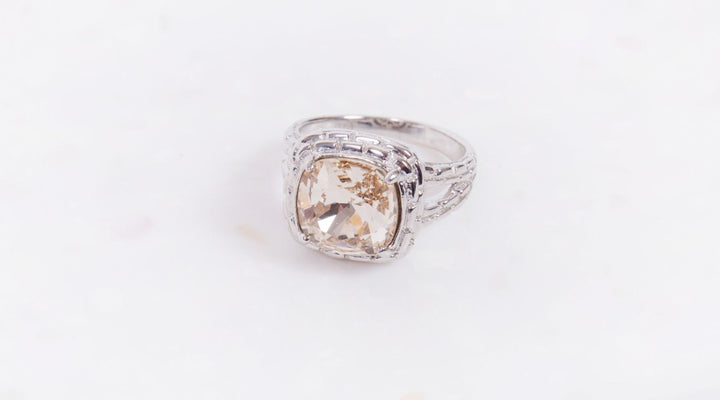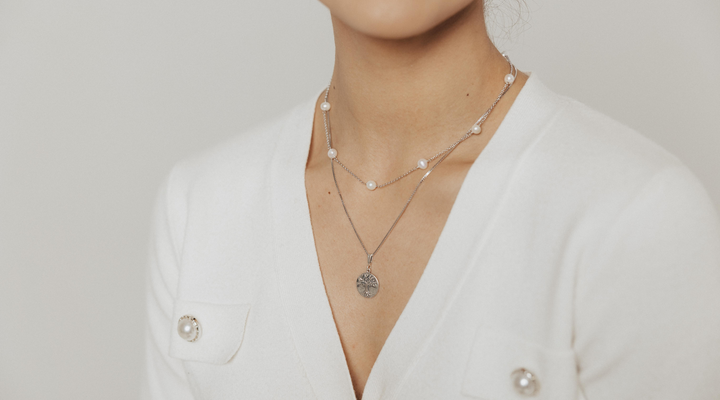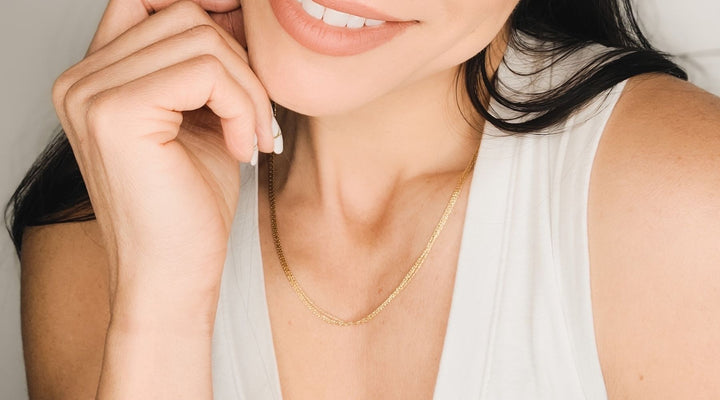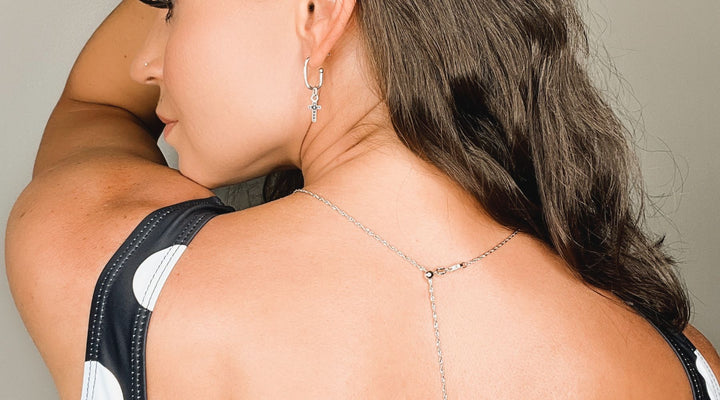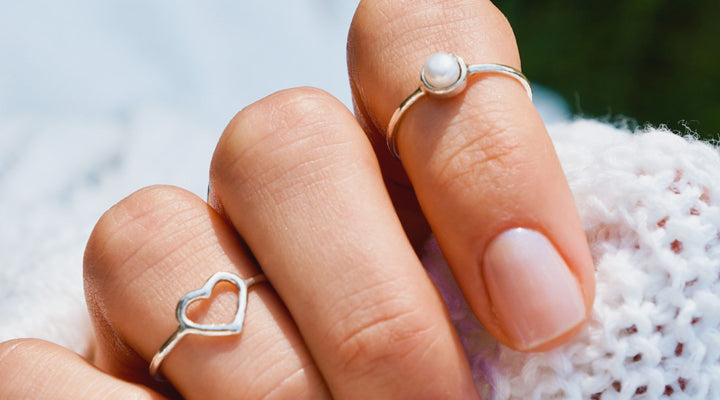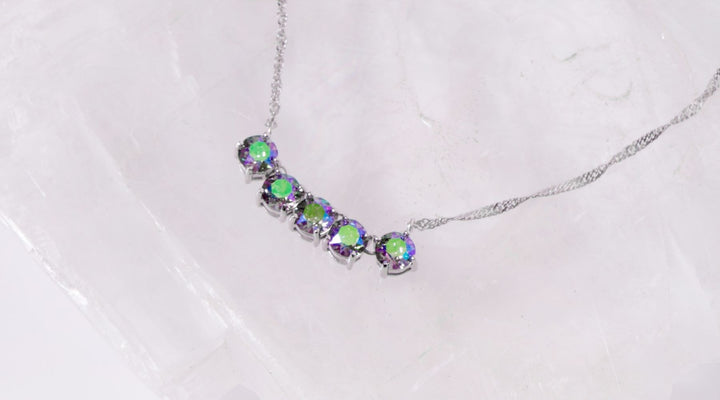Why You Should Stop Buying Brass Jewelry
Posted by Deven Davis on
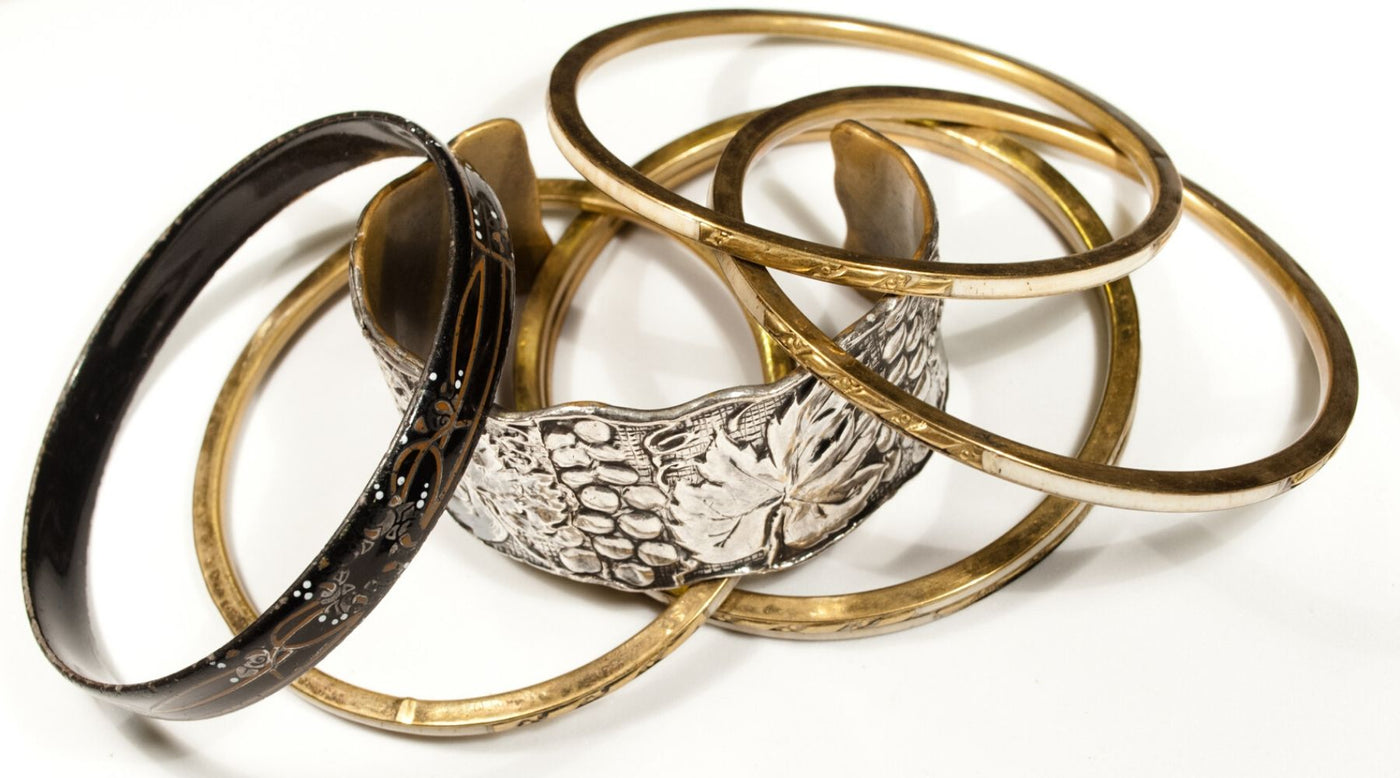
Why You Should Stop Buying Brass Jewelry
There are few reasons not to wear jewelry made of cheap base metals, but allergic reactions are definitely at the top of the list - and brass jewelry is the number 1 culprit for these metal allergies.
Keyword(s): brass jewelry
The jewelry market rakes in about $70 billion every year.
But, if women are spending so much money on these pieces, why is it that we end up with pieces that break, cause an allergy, or go out of style so quickly?
If you're ready to start investing in jewelry that's timeless, effortlessly chic, and made from high-quality material so that it can last for generations of strong women, you need to read this post.
In this article, we're especially focusing on the reasons why it's time to stop purchasing cheap brass jewelry and upgrade to jewelry crafted from superior quality noble metals and refined gems.
Invest In You: Stop Settling For Brass Jewelry
When it's time to treat yourself, you want the very best. You may think you're getting a great deal by buying a more affordable piece of jewelry, but more often than not, you just end up throwing money away.
As more and more jewelry sales happen online, it can sometimes be hard to accurately judge the quality of the materials you're getting.
One of the materials you need to stop buying now? Brass jewelry. Why? Read on.
Brass Jewelry Can Turn Your Skin Green

We've all been there: you remove a brand new bracelet or ring, only to see an unsightly green line left on your skin.
Sadly, this is all-too-common when it comes to brass jewelry.
Since brass is usually made of a combination of zinc and copper, it can often tarnish, or oxidize - leaving you unwillingly green with envy.
This is because the oils in your skin, the air's oxygen, and even the humidity level outside all combine to make a perfect storm in the brass.
Especially if the brass is plated and coated, this can happen even after a few short hours of wear.
Plus, because the surface of brass jewelry can get tarnished so quickly, you'll find yourself needing to polish it all the time.
It's frustrating to have to sink so much time and effort into cleaning and caring for a piece of jewelry that still turns you green. Even worse? The surface gets scratched quickly, meaning that often, your pieces look beat-up after even just a few wears.
That's just not a good look - or a good investment.
How To Spot Brass Jewelry That Will Turn You Green

These days, it can be hard to really know what you're buying, especially as the vintage craze has taken hold.
Investing in a metal testing kit for about $50 is a certain way to tell the quality of your jewelry before you make a purchase.
The kits contain solutions that you blot or rub into your jewelry, and if unseemly metals are being used in the pieces, the solution will turn a different shade.
Better the solution than your skin, right?
Brass Jewelry Can Cause Allergies To Flare Up

Did you know that, in addition to zinc and copper, brass can also contain nickel, one of the most serious causes of allergic reactions out there?
The reason why brass causes your body to flare up is actually fairly fascinating. Your body feels that the brass, and the metals it contains, could harm you, and so your immune system goes into overdrive.
Especially if you're wearing these jewels for long periods of time, this allergy can only get worse.
If you're experiencing itching, redness, or even a rash, even two days after you've worn brass, it's likely the cause of what ails you.
Brass has even been known to cause blistering - something you definitely don't want to happen the night before a big party or meeting!
If brass gets you, in addition to stopping wearing and buying it, we recommend that you rub a little cortisone on it - and try to keep your hands off the affected area.
On a more serious note, brass can also really cause any pre-existing lung or breathing issues you may have to flare up.
In fact, this discovery was made after musicians playing brass instruments reported issues with breathing that resulted from bacteria and mold growing in the pipes of their instruments. Yuck!
While cleaning your brass jewelry may be enough for some people, for most of us, wearing something that could make us sick just isn't worth the risk.
You can find safer ways to make a statement when it comes to jewelry. With that in mind...
What Are Some Alternatives I Can Look For?
So, what can you buy instead of brass jewelry? We've already emphasized that it's crucial to focus on jewelry as a long-term investment. While the style of jewelry you buy will depend on your personal preference, some of the materials we suggest are:
- Roman Glass: Roman glass offers a chance to wear a piece of history. 2000-year-old excavated glass fragments are reborn as both elegant heirloom pieces, as well as for more conversation-piece statement jewelry.
- .925 Sterling Silver: Of course, you can't go wrong with this brass jewelry alternative. It's the foundation of a quality jewelry collection. Buy pieces that stand the test of time - in both style and function.
- Platinum or Gold Vermeil: This is an alternative for gold that's not just more affordable, but also lighter. You might also hear it referred to as silver-gilt. If you're into delicate chains, this is a great option.
- Pearl: Of course, pearls are a classic alternative to brass jewelry. They're perfect for the woman who prefers the style of Coco Chanel, but these days, pearls are also getting seriously funky upgrades. You don't have to settle for a simple strand anymore.
Stop Wasting Your Money And Time On Brass Jewelry
With so many fabulous options at your fingertips, why waste another minute dealing with the hassles and problems of brass jewelry?
Treat yourself to something special, that you can wear for years. No matter what kind of style, budget, or event you're trying to find a piece for, don't settle for brass just because it's the cheapest option available.
To gather more inspiration for your next jewelry purchase, feel free to browse through our website. Have questions? Contact us.






